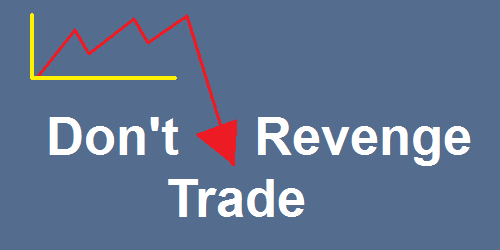The role of psychology in trading
Do you remember the last time you were very angry? Maybe you did something and you were surprised by your actions. As much as you regretted it afterwards, at the time you probably couldn't help it and furthermore, you are likely to act the same way again if you become angry in the future.
This is because the psychology of a person is made up of thoughts and feelings that are an incitement to act, and so psychology shapes our behaviour in every aspect of our lives – trading is no exception.
Emotions are inevitable – especially for a new or unskilled trader and they can prevent you from making an objective decision. For this reason, learning how to control emotion becomes paramount to successful trading over and above everything else.
The Zone
When a trader is thinking clearly and uninfluenced by emotion, he is said to be in the zone. When you are in the zone, you are in control of your behaviour and are able to follow a trading strategy in a logical and systematic way.Some traders find it easy to get into the zone, but even those who struggle can learn to control their behaviour and become emotionally detached from trading.
Emotions that influence trading
The emotions in trading that have a negative impact on results are greed and fear. These emotions cause a trader to deviate away from their plan, which can lead to further issues, such as ego and revenge trading.
The following are examples of these emotions and how they can negatively affect trading results.
Fear of losing can lead to further losses
When a trader has a fear of losing, they try to avoid them. This can actually increase losses.For example, a trader may open a trade and place their stop loss, say, 20 pips away – based on the strategy they use. In other words, there is a technical or fundamental reason for it being placed where it is.
However, a trader that is influenced by fear may close the trade prematurely, simply because the trade temporarily goes against them. So if the trade goes against them by, say, 10 pips, then the trade results in a 10 pip loss. If the trade turns out to be a winner, then the trader has just turned the winning trade into a losing one out of fear.
Another scenario is when a trader closes their trade as soon as it has gone into profit, out of fear that they can lose that profit. If the trade then goes on to hit the profit target, then the trader has reduced a full winning trade down to a much smaller win.
This behaviour ultimately turns a profitable strategy into a losing one, because the trader reduces the amount of winning trades and/or reduces the profit overall because of fear of losing.
Greed results in trying to take too much profit and end up with less.
When a trader experiences greed, it means that they try to go for too much profit and deviate from their strategy. For example, a trader may place their profit target in accordance with their strategy. This means that – as with placing a stop loss – there is a technical or fundamental reason for doing so.However, when greed influences a trader, they do not close their trade when the strategy has dictated they should – they try and go for more. What can happen is that the trade can turn against them, ultimately ending up with less profit, or worse, a losing trade. This means that they actually reduce the profitability of a strategy because they try to increase their profit through greed.
A trader influenced by ego will never admit they are wrong
A trader under the influence of ego does not want to admit they are wrong.For example, if the trade does not go well, instead of closing their trade according to the strategy, they carry on taking a bigger loss than necessary because they cannot admit that they are wrong.
Another scenario may be that after taking a loss on a perfectly good trade, they do not go on to look for the next setup according to their strategy. Instead, they continue taking trades based on their original analysis because they believe they were right in the first place.
Revenge trading is chasing the money you have lost on a trade
The importance of discipline when trading
To avoid emotionally influenced trading, you will need to build discipline that will allow you to think as objectively as possible. There are several ways in which you can do this:
Trade with a tried and tested strategy
You are much more likely to remain calm under pressure if you have confidence in your trading plan. If a strategy has not been tested enough, it may lead to doubts that could allow fear to overwhelm the trader.
Demo-account trading

Accepting the risk
A strategy with a 100% winning ratio is unrealistic. You must be prepared to accept losses. It is normal to hope that every trade turns out to be favourable. However, inexperienced traders are likely to experience a stronger emotional impact when they take a loss. In contrast, a profitable trader is able to accept losses as part of the trading strategy and move on to the next trade, without allowing greed or fear to affect future decisions.


No comments:
Post a Comment